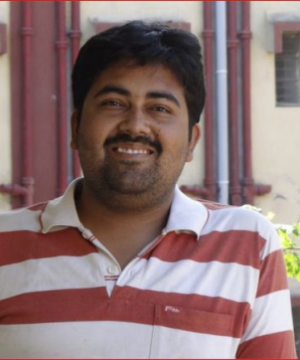
Abstract: In this talk, I will discuss our ongoing efforts to build machine learning (ML) algorithms with the ultimate objective of multimodal inverse design of materials. Recent progress in ML has profoundly influenced inverse design and materials discovery, particularly in critical sectors like semiconductors, where enhancing the efficiency and reliability of devices such as microchips and solar cells is paramount. The objective of utilizing ML for inverse design and materials discovery is accomplished by first building relationships among process conditions, material structures, and their properties (PSP-linkage). This knowledge is then leveraged to explore the space of process conditions in search of desired material properties.
Deploying ML models for materials discovery, however, poses significant challenges. Materials processing datasets are frequently scarce and costly to acquire, making it challenging to train ML models for high-dimensional data such as images. Furthermore, relevant measurement information is typically obtained from different sources of experiments (multimodal) that capture varying levels of the underlying physics. Moreover, these multimodal data can also be heterogeneous, including scalar parameters, 1D time-series data, 2D images, and 3d voxels. Integrating such multimodal data is vital for creating a reliable ML model that can accurately link processes, structures, and properties. The cost-intensive experiments required to acquire multimodal observations during inverse design can further restrict the exploration of design conditions, introducing additional complexity.
Our ML approach currently targets Molybdenum thin films produced under various sputter deposition conditions. I will begin by illustrating our Bayesian optimization (BayesOpt)-driven method, aimed at discovering process conditions that meet multiple design objectives for Mo films. The experiments have successfully verified the optimal conditions discovered by our BayesOpt method. I will then describe our ML strategy to learn PSP-linkage in Mo films from multimodal data. First, various feature extraction methods are employed to represent a joint latent representation of the multimodal data. Then, a deep learning model is used to learn a relationship between process parameters and the joint latent representation. The feature extraction method reduces the dimensions of datasets, mitigating the challenge of data scarcity and making them suitable for ML-based PSP modeling. In the future, this methodology could pave the way for identifying process conditions using high-dimensional multimodal data.
Speaker’s Bio: Ankit Shrivastava serves as a Postdoctoral Fellow at Data Sciences and Computing, Sandia National Laboratories. His research focuses on advancing machine learning, computational modeling, and high-performance computing algorithms to tackle engineering challenges. He earned his Ph.D. in computational mechanics and a master's in machine learning from Carnegie Mellon University. Before this, he completed his master's in computational science at the Indian Institute of Science, Bangalore, and obtained a Bachelor's degree in civil engineering from the Indian Institute of Technology, Kharagpur.
Last Updated: April 24, 2024 - 11:10 am